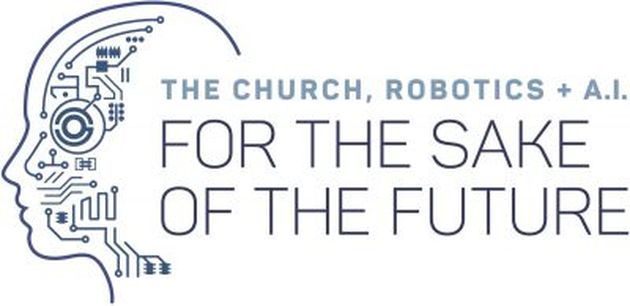Christians appear to be able to offer a framework for insisting on the value and dignity of the human being in a mechanising world.

On 29th June, we took part in a national conference called ‘For the Sake of the Future: The church, robotics and AI’ organised by CARE.
Over 250 church leaders, Christians in industry, students and others came together at the British Library to explore the theological, social and practical implications of advances in artificial intelligence and robotics.
Nigel Cameron opened the conference by posing three central questions: Firstly, what is the proper place of technology in the created order? Secondly, with increased technological unemployment, what will we do with our free time?
And finally, how do we respond to increasing human engagement with beings that are not human, but have been created to mimic humans?
In the first keynote session, Professor John Lennox provided a critique of a secular worldview underpinning technological development, arguing that ‘…behind writing on AI lies a whole raft of materialistic suppositions’.
Exploring transhumanist philosophy, Lennox highlighted the drive towards technologically-enabled immortality and the intensification of the pursuit of happiness.
Lennox argued that the alternative for Christians is found in Genesis, where he unpacked an interpretation of the biblical definition of life and offered the hope of resurrection as a counter-worldview from which to embrace technology. His full talk is available to watch on the CARE Facebook page.
We also heard from John Cruddas MP, who spoke urgently on the need for politics to regain its ‘ethical grip’. He argued that as politics has become increasingly managerial, we’ve forsaken the moral questions of how we want to live—and these questions are necessary for us to have any meaningful conversation about technology policy.
He was also critical of political leaders buying into ‘techno-solutionism’ (assuming all problems can be solved by technology) and insisted that we do not have to accept the technologists’ diagnosis of society’s ills. Ultimately, politics should re-establish the principles of a good life.
Seminars across the day covered a wide range of topics and speakers, including the impact of sex robots, use of robotics in healthcare, AI developments and the church’s response, and technological unemployment.
We also delivered our own seminar, ‘Future Economics: The end of business? A.I., economic disruption and hope’ which reflected some of the content from our forthcoming AI paper, to be published in early August.
Finally, Dr Patrick Dixon closed the day with a positive overview of technological achievements, and argued that ‘we love robots’ for the ways in which they release us from burdensome tasks so that humans can have dignity in work.
Whilst many Christians are making this first foray into the topic, there was still some sense of caution from speakers in speaking too definitively into a field that is rapidly changing (and in which predications often prove tricky to make).
However as Christians collectively grapple with this issue, there is hope that individual thinkers will increasingly be able to articulate bolder ideas, opinions and leadership on a future for AI-Robotics informed by biblical thinking.
Overall the conference made a good start in bringing a Christian worldview to AI, robotics and the wider role of technology in God’s creation.
The Genesis account was a recurring theme, from passing references to ‘the image of God’ to deeper study of the passages, revealing the need for continued work on the importance of Genesis beyond the popular focus on the creation-evolution debate.
Moreover, Christians appear to be able to offer a framework for insisting on the value and dignity of the human being in a mechanising world, as well as recapturing the vision for a ‘good life’ which AI and robotics can be made to serve.
Charlee New, Communications and Marketing Officer at the Jubilee Centre.
This article first appeared on the Jubilee Centre website and was republished with permission.

Las opiniones vertidas por nuestros colaboradores se realizan a nivel personal, pudiendo coincidir o no con la postura de la dirección de Protestante Digital.
Si quieres comentar o